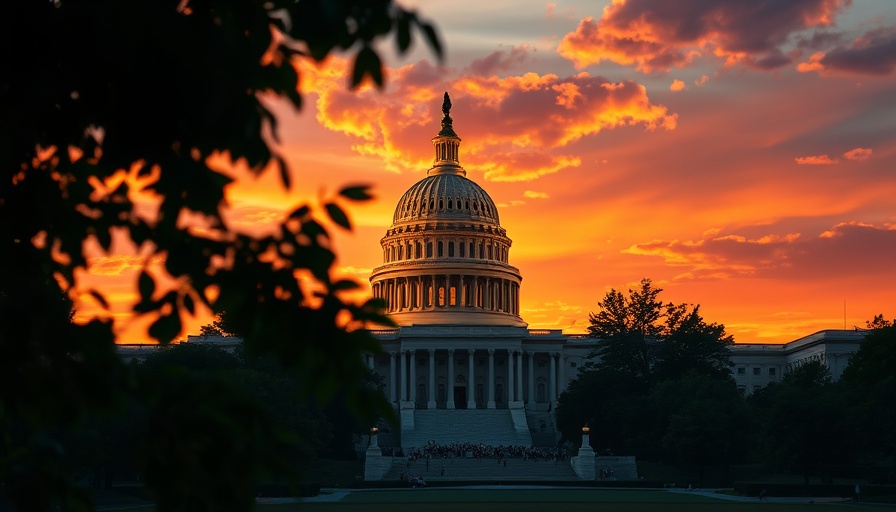
White House Crackdown: What It Means for Congress
The recent decision by the White House to restrict intelligence sharing with Congress raises significant concerns over government transparency and accountability. In the wake of a leak detailing an early assessment of U.S. military strikes on Iran, officials have decided to limit information posted to CAPNET, a secure system used by Congress to access classified materials. This decision, confirmed by a senior official, signals a pivotal shift in communication between the executive and legislative branches, a move that many lawmakers fear could erode trust and inhibit informed decision-making.
Understanding the Leak: Implications and Consequences
The leak that triggered this backlash involved an assessment from the Defense Intelligence Agency, which estimated that U.S. strikes set back Iran's nuclear program by only three to six months. This finding sparked criticism from both sides of the aisle. Senate Minority Leader Chuck Schumer emphasized the importance of transparency, suggesting the administration’s move to limit information was an intentional effort to skew the narrative. Such claims reflect broader concerns about how the government handles information in politically sensitive situations.
Democratic and Republican Reactions: A Divided Congress
Lawmakers are reacting passionately to the White House's choice to limit access to intelligence. Speaker of the House Mike Johnson echoed Trump’s sentiments, emphasizing that the leak was both 'dangerous and ridiculous.' His remarks highlight a growing bipartisan frustration over information management in the current political climate. As the Senate prepares for classified briefings concerning the strikes, Democrats have suggested that delays in information sharing are an effort to mask the truth from Congress, igniting further tension over governance practices.
Classifier Briefing: The Impact of Limited Information
During the upcoming classified briefing originally planned for Tuesday and delayed to Thursday, top cabinet officials—such as Secretary of State Marco Rubio and Defense Secretary Pete Hegseth—are expected to address Congress regarding the Iran strikes. This briefing has taken on an increased significance as Congress seeks clarity amidst growing concerns about the administration’s communication policies. The absence of Director of National Intelligence Tulsi Gabbard raises questions about the robustness of the intelligence community's representation, which may affect Congress’s discourse on this critical issue.
A Historical Context: Intelligence Sharing in Modern Politics
This isn't the first time intelligence sharing between the White House and Congress has faced scrutiny. Historical tensions surrounding information management often reflect changing political landscapes. With various administrations adopting differing approaches to transparency, the need to balance national security with the right of Congress to make informed decisions has always been a burning issue. Past examples highlight the importance of open communication in fostering trust within government institutions.
Future Predictions: Navigating Intelligence and Political Pressure
As the current administration takes stringent measures to control information flow, experts predict that this might set a troubling precedent for future interactions between the two branches of government. If this pattern continues, Congress may find itself sidelined, leading to a more autocratic approach to governance where vital national security discussions become shrouded in secrecy. This shift could ignite further discontent and create a sense of alienation among lawmakers, potentially skewing political discussions away from collaborative governance.
Recognizing the Value of Transparency in Governance
The White House’s intention to restrict intelligence sharing underscores an urgent need for reflection on governance and transparency. Lawmakers and the public alike must advocate for open channels of communication between branches of government. Understanding the decision’s implications is crucial for maintaining an effective representative democracy, where the voices of elected officials resonate with the populace.
Conclusion: The Call for Accountability
In conclusion, the White House's decision to limit intelligence sharing represents more than just a reaction to a leak; it may be indicative of broader issues regarding governance, accountability, and the public's right to know. As citizens observe the developments in Congress, advocating for transparency and accountability has never been more vital. A collaborative approach between branches will allow for informed decision-making that benefits not just political leaders but all citizens who rely on government integrity.
 Add Row
Add Row  Add
Add 




Write A Comment